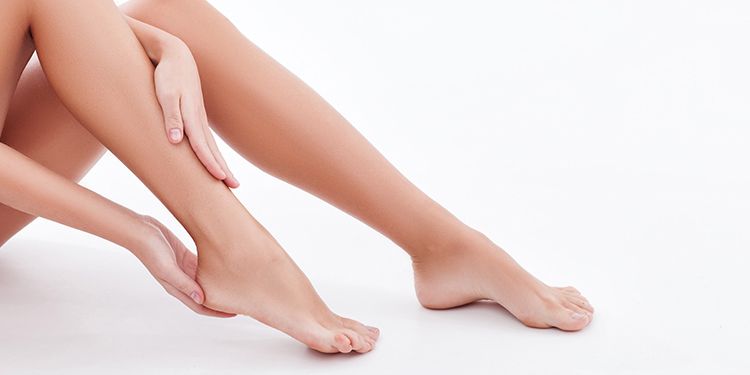Recognizing the Origin of Excessive Sweating and Its Influence On Daily Life
Too much sweating, additionally known as hyperhidrosis, is a condition that affects a significant part of the population, yet its underlying reasons and implications on daily working continue to be rather enigmatic. While it is typically recognized as a physiological reaction to regulate body temperature, the triggers for too much sweating can vary commonly amongst individuals, including not just physical elements yet likewise emotional and psychological components. The influence of this condition extends beyond mere discomfort, typically influencing social communications and general quality of life. By delving into the origin causes of hyperhidrosis and discovering its multifaceted impacts, a deeper understanding of this pervasive issue can be gotten, clarifying the complexities that individuals grappling with extreme sweating navigate daily.
Physiology of Sweat Glands
The policy of sweat manufacturing, a critical physical procedure, is mostly controlled by the task of sweat glands distributed across the human body. Gland are classified into 2 main types: eccrine and apocrine glands. Eccrine glands are the most many and are located in mostly all locations of the body. They play a crucial duty in thermoregulation by producing a watery fluid onto the skin's surface, which evaporates and aids cool down the body down. In contrast, apocrine glands are concentrated in locations abundant in hair roots, such as the underarms and groin, and their secretions are thicker and milky in look.
When the body temperature climbs, either due to physical task, high temperatures, or psychological stress, the nerve system activates the sweat glands to create sweat. This sweat is composed mainly of water and electrolytes like sodium and chloride. The procedure of sweat production is essential for preserving the body's internal temperature within a narrow, optimum array, highlighting the critical duty gland play in human physiology.
Triggers for Excessive Sweating
In understanding the source of extreme sweating, it is important to recognize the triggers that can result in this physical reaction. Excessive sweating, also called hyperhidrosis, can be prompted by different aspects, both physiological and ecological. One common trigger is emotional stress and anxiety or anxiety, which can stimulate the body's gland to create even more sweat than is necessary for cooling down. Physical physical effort, heats, and spicy foods are likewise understood to trigger excessive sweating in individuals prone to this condition. Specific clinical problems like menopause, diabetes mellitus, or hyperthyroidism can contribute to too much sweating as well.
Additionally, medications such as some antidepressants, opioids, and certain supplements can likewise work as triggers for hyperhidrosis. Understanding these triggers is important in taking care of too much sweating efficiently - Sweaty hands treatment. By determining and dealing with the specific triggers that motivate too much sweating in a private, health care service providers can create tailored therapy strategies to reduce this problem and improve the person's lifestyle
Medical Issue Associated
Connected with excessive sweating are various clinical conditions that can aggravate this physiological reaction. One usual problem is hyperhidrosis, a problem defined by unusually raised sweating that surpasses the body's thermoregulatory needs. This can show up in focal areas like the palms, soles, underarms, or face, affecting a person's lifestyle due to social shame and pain.
In addition, endocrine disorders such as hyperthyroidism, diabetes mellitus, and menopausal hot flashes can likewise lead to extreme sweating. Hyperthyroidism causes an overproduction of thyroid hormones, increasing metabolism and triggering sweating.
In addition, infections like consumption, endocarditis, and hiv have been connected with evening sweats, an usual symptom understood to interrupt sleep and impact overall health. These medical problems highlight the diverse variety of underlying variables that can contribute to too much sweating, demanding complete examination and administration by health care specialists.
Psychological and psychological Variables

Influence On Social Interactions
Too much sweating can have extensive effects on a person's ability to involve pleasantly in social interactions. The noticeable signs of sweat stains or damp spots on clothes can bring about shame and self-consciousness, causing people to take out from social circumstances. This withdrawal can affect connections, restriction social activities, and prevent professional and personal growth.

Additionally, the about his anxiousness and self-confidence problems originating from extreme sweating can impact communication and interpersonal skills. Individuals may battle to concentrate on discussions, take part in group activities, or reveal themselves confidently. This can lead to sensations of seclusion and solitude, as social connections end up being challenging to maintain.
Final Thought

While it is typically recognized as a physical response to manage body temperature level, the triggers for excessive sweating can differ widely among people, including not only physical aspects however mental and likewise emotional aspects. By diving into the origin creates of hyperhidrosis and exploring its multifaceted results, a much deeper understanding of this pervasive issue can be obtained, shedding light on the complexities that people grappling with extreme sweating browse on a daily basis.
Physical exertion, high temperatures, and spicy foods are also recognized to cause too much sweating in people vulnerable to this problem. By recognizing and attending to the specific triggers that trigger excessive sweating in an individual, medical care companies can establish customized therapy strategies to alleviate this problem and improve the individual's high quality of life.
Too much sweating can have extensive impacts on a person's capability to involve conveniently in social interactions.